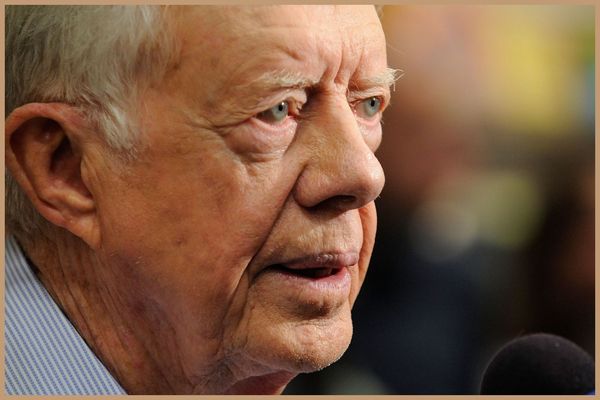
After 30 submissions, South Korea has finally received its first Oscar nomination with Parasite, which was nominated not only for Best International Feature Film but also Best Picture.
Director Bong Joon-ho has made headlines repeatedly since the film’s debut: the first Korean director to win—unanimously—a Palme d'Or at the Cannes Film Festival; the first Korean film to win a Golden Globe; the first non-English film to win the top prize at the SAG Awards.
The most common answer to why Parasite became an international sensation is that it's a universal story about poverty, inequality, and contemporary capitalism. Anyone can relate to its characters’ alternately admirable and delusional struggle for ever more. But so did Hirokazu Kore-eda's Shoplifters paint a subtle portrait of a chosen family of outcasts trying to survive poverty. By the same token, it should have achieved the same level of recognition as Parasite, yet its cinematic language limited its reach to a much smaller audience.
Parasite's overwhelming success is largely thanks to Bong's genre-bending delivery. It strikes a sweet spot that attracts both art-house and mainstream audiences — a baseline requirement for being nominated by the Oscars. But it would be a mistake to ignore its cultural and cinematic predecessors as well as a well-timed and executed marketing offensive.
Bong recently called the film "a continuation of all the Korean films that came before," perhaps more specifically the creative explosion of Korean cinema since the late '90s. Recent Korean blockbusters, including Yeon Sang-ho's zombie thriller Train to Busan and Lee Chang-dong’s psychological drama Burning, have helped to lift the cultural barricades of the West and the Oscars for Parasite.

"Parasite was like [Bong] submitting his 'progress report' to Korea," said Sang Kang Ho, Parasite's lead actor, in an interview with Vulture.
The Korean comic thriller has swept over 75 awards to date, beating Quentin Tarantino's critically acclaimed Once Upon a Time… in Hollywood and Noah Baumbach's Marriage Story. The Oscar best picture nominee has earned over $24 million in the United States, becoming the highest-grossing foreign-language film of 2019. Its story of an upstairs-downstairs class struggle appealed to even the American moviegoers who might ordinarily steer clear of subtitles.
Breaking Hollywood's glass ceiling
Many argue that Korea's screening quota, which requires cinemas to show homegrown movies for 146 days in a year, has boosted the Korean film industry and protected it from being wiped out by Hollywood blockbusters. But analysts say there's no direct correlation between the domestic quota and the quality of Korean films. If the imposed quota had any effect at all, it would have likely encouraged filmmakers to produce sloppy movies.
Ironically enough, Hollywood — the very place Asian filmmakers are trying to break into — has contributed to the rise of Korean cinema, especially in the past decade. The current generation of world-renowned Korean directors, including Bong himself, has spent time in Hollywood before making their international debuts.
Korean films have long emulated the Hollywood formula in terms of the never-stale three-act storytelling structure and recurring themes of sex and violence. What's more precious to these directors, however, is the experience of working with a Hollywood crew and understanding the Western audiences' tastes.
Park Chan-wook, one of the most famous directors in Korea, became a cultural icon in the 2000s with record-breaking blockbuster Joint Security Area as well as The Vengeance Trilogy. But he didn't settle with domestic box office success. Park later went to Hollywood for six years and made an impressive comeback with the well-received erotic thriller The Handmaiden. The following year, he was the fourth Korean filmmaker ever to sit on the Cannes jury.

As for Bong, he became a household name in 2006 after breaking Korea's box office record with The Host, a monster thriller with elements of dark comedy and political commentary. Parasite again reflects the writer-director’s ability to execute socially informed horror, its dark satire reminiscent of his early works.
Yet before the birth of Parasite, he did spend almost the entire 2010s in Hollywood writing and directing English-language films, as well as accumulating studio experience from Snowpiercer, a sci-fi thriller, and Okja, which made a controversial but successful debut at Cannes following the French theater elites' critique of Netflix as a low-brow streaming platform.
In the past two decades, Korean filmmakers have flourished and developed their unique cinematic styles. Bong’s films, for example, do not fit perfectly into traditional genres. His newfound confidence to tell a distinctly "Korean" story that resonates beyond linguistic and cultural barriers has made Parasite a favorite of movie lovers the world over.
Swaying the Academy
However, what pushed Parasite to new heights, beyond the auteur himself, was the U.S. independent film distributor Neon. A New York-based indie distributor, Neon has scouted films that boast an intellectual cinematic experience, including Portrait of a Lady of Fire. (It was arguably the Oscars’ gravest mistake of the year to snub Céline Sciamma’s captivating work — or that of any female director, for that matter.)
Not only does Neon carefully select its films, it also excels at witty marketing campaigns. Parasite’s Twitter account, for example, comes across like a chill, sarcastic Millennial who doesn’t bother to impress.
Bong’s media appearances in the United States were also intentionally timed. In October 2019, he made a soft entrance with extensive magazine interviews — The Atlantic, GQ, Vanity Fair, and Time, among others. Two months later, his first late-night appearance on The Tonight Show starring Jimmy Fallon went viral. The charm offensive began with the curly-haired director, at the peak of his career, admitting that he was so hungry during the eight-minute standing ovation at Cannes that he tried to rush it along.

Bong’s self-deprecating humor and down-to-earth demeanor have been key ingredients for his marketing success. This in turn has helped generate a trending conversation that few cineastes and ordinary moviegoers want to be left out of.
Then there is the Academy voting committee, which is comprised of filmmakers and actors who are likely also involved in prestigious associations including the Screen Actor Guild and the Producers Guild of America. Unlike film festivals that require their committee members to sit through every submission, sans intermissions or bathroom breaks, the Academy relies solely on its exclusive members’ discretion.
With Cannes over in May and Academy members expected to turn in their nominations by January, most would have seen a dozen submissions at most. Their judgment is often heavily influenced by word of mouth and media reports, and many of these decision-makers had already picked their favorites from a pool of pre-Oscar award winners.
The PGA Awards, seen as one of the most reliable Oscar-winner forecasters, has chosen 1917 over Parasite for Best Picture. Nonetheless, the cultural storm around Parasite attests to the rise of Korean cinema, which now joins K-pop’s global moment as another of the country’s surprisingly successful exports. And if Parasite ultimately overcomes a conservative Academy and unfavorable odds to take the top prize, that would just be the latest of its many spectacular plot twists and upsets.
READ NEXT: 'Portrait of a Lady on Fire' Defies the Male Gaze in Cinema
TNL Editor: Jeremy Van der Haegen (@thenewslensintl)
If you enjoyed this article and want to receive more story updates in your news feed, please be sure to follow our Facebook.







